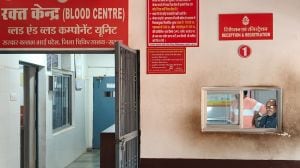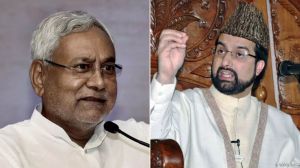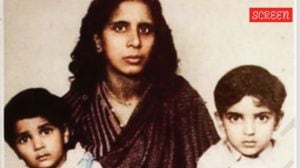Stern signal on broadcast of sensitive channels
The govt is moving to change the law that will even permit imprisonment of cable operators.
Raising the security red flag on the illegal broadcast of certain unregistered and sensitive channels,the government is moving to change the law that will even permit imprisonment of cable operators besides seizure of equipment if they broadcast such channels.
Its learnt that the Information amp; Broadcasting Ministry has even moved a detailed Cabinet note to amend the Cable Television Networks Regulation Act after consultations with the Home Ministry. Such is the urgency that even an ordinance is not ruled out in case the proposal clears Cabinet without much delay.
The key change is a fresh provision that prohibits re-transmission of unregistered channels by any cable operator irrespective of the manner of reception of such channels by the cable operator. This essentially also removes the scope for cable operators of picking up channels via the internet using broadband connectivity.
A cable operator found flouting this provision will attract stringent action like seizure of equipment by any authorised officer. But more significantly,the first time violation of this provision can lead to imprisonment of up to two years and second violation could extend to five years.
The target of this provision is a list of 25 channels prepared by the Intelligence Bureau,which are said to be illegally broadcast in different parts of the country. Prominent among them are channels like Irans Press TV,Pakistani Islamic channel QTV and Mumbai-based Zakir Naiks Peace TV which is broadcast from Dubai.
While these channels are banned,the enforcement of the ban has become a problem for district authorities. In one case,a district official was transferred due to public outrage caused by his decision to act against cable operators broadcasting one of these channels.
Last September,claims by Press TV that a group of Christians had torn the Quran led to instant protests and violence in Srinagar. This was around the time when sentiments were high because of American pastor Terry Joness threat to burn the Quran.
With security agencies convinced that such channels broadcast content that radicalise viewers,the Centre set up a Committee of Secretaries with representatives from the intelligence agencies including the National Technical Research Organisation. Their first mandate was to figure out a technical solution to block the signals of these channels from reaching India.
A massive scientific effort was carried out which concluded that even though a technical solution was possible,it cannot be resorted to because of the political implications of such an action. Any blocking of signal,sources said,could be seen as an assault on the satellite of another country where it may be legal to view these channels.
Under these constraints,the government decided to move on making the laws more stringent. While many of these channels do apply for registration to the Iamp;B Ministry,they are referred to the Home Ministry which has repeatedly turned them down for security reasons.
- 01
- 02
- 03
- 04
- 05































